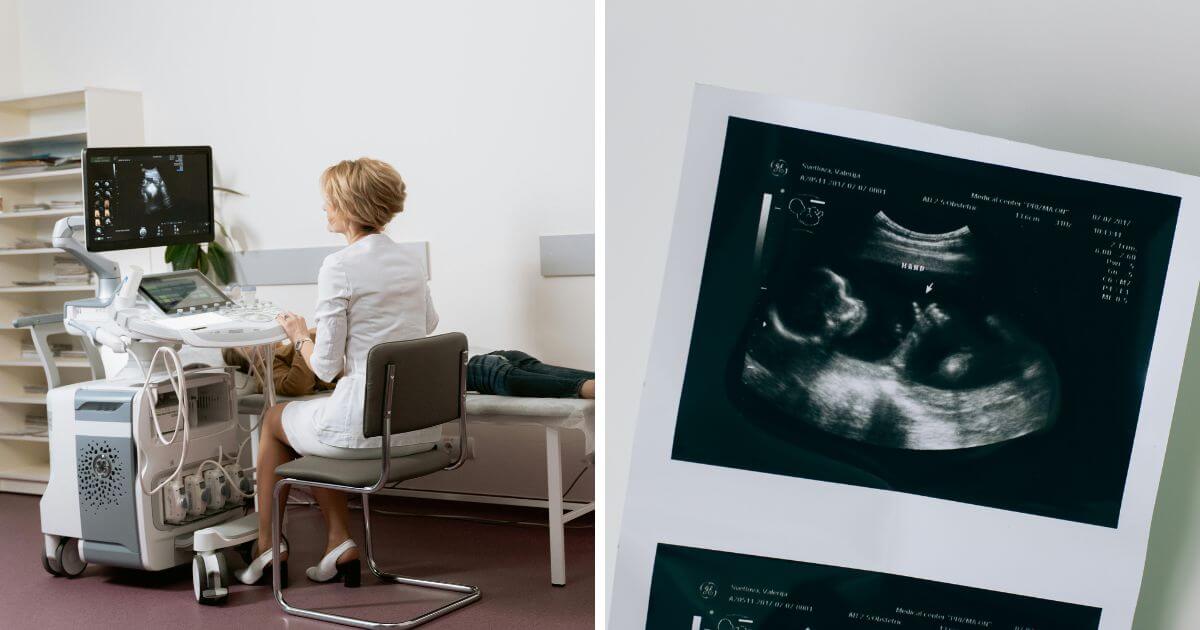A baby girl from Nottingham is alive and well today, thanks to life-saving treatment performed while she was still in the womb.
When Eleanor Brannigan was 27 weeks pregnant with her first child, a routine private scan revealed a large build-up of fluid in her baby’s body. The fluid posed a serious risk to the baby’s heart and lungs and, left untreated, could have led to heart failure.
Doctors at Nottingham University Hospitals Trust (NUH) confirmed that baby Éabha was severely unwell and presented Eleanor and her partner, Adam, with a number of difficult options. One option was to monitor the baby and wait, though this would likely have resulted in further fluid build-up. Another possibility was early delivery, but birth at 27 weeks would have placed their daughter at high risk of serious complications due to extreme prematurity.
A third option involved draining the fluid with a needle, but this would likely have required multiple repeat procedures. A more permanent approach, the insertion of tiny shunts to drain the fluid, was available only in specialist centres. Thanks to the expertise and network of fetal medicine consultant Dr Magdalena Fiolna, the family was able to access this procedure in London.
The surgery was successful, and although the shunts eventually stopped working, which is a common complication for these procedures, they had done enough to allow Éabha to remain in the womb for several more weeks. She was born at 31 weeks by caesarean section after further fluid was drained just before delivery to allow her to breathe more easily at birth.
Dr Fiolna said “she is a miracle baby and if we had not intervened, she might not be here with her family now. I am so very pleased that we were able to help and that Éabha is now at home and doing really well”.
After 12 weeks in neonatal intensive care, Éabha is now eight months old and thriving. Her mother said “we will be eternally grateful for all the help and support of Dr Fiolna and the teams that helped to save and look after Éabha”.
“Had we not met Dr Fiolna that day when we came in to get checked out, then the outcome may have been so very different”.
She added “The fetal medicine team and neonatal teams have all been so supportive and we could not have asked for more. Thank you to everyone for looking after us and for going above and beyond for our family. Éabha will always be our special miracle baby, she is a little fighter and we are just so grateful that she is here with us”.
Spokesperson for Right To Life UK, Catherine Robinson, said “The improvements in medicine are helping save more and more babies’ lives. It’s amazing that doctors can now operate on a baby before he or she is even born.”












